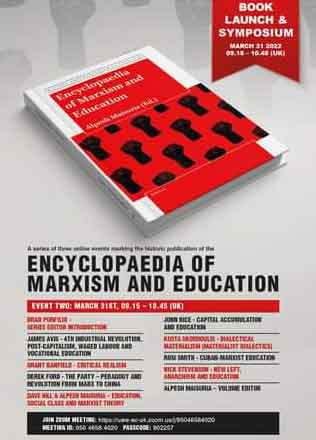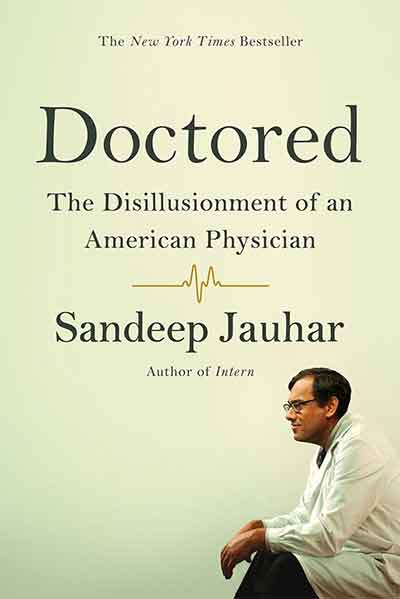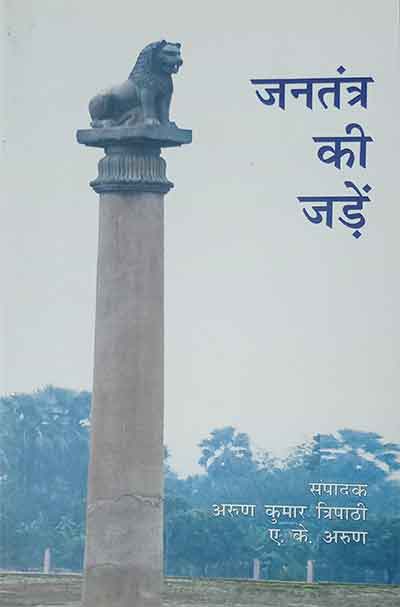by Dr. Dilnaz Boga and Rohit Ranjan
We are living in times when societies across the world are struggling with socio-economic, political, ecological and spiritual crises. Simultaneously, disparities between social classes in terms of resource appropriation and allocation are growing starker with time. Despite the severity of crises in all walks of human life in the twenty-first century, the question which arises among progressive activists and intellectuals is why aren’t working people and oppressed classes around the world not revolting against the present world order, as they did in the previous century? It is this question this encyclopaedia tries to answer in the context of Education.
Since time immoral, education has been used by the ruling classes across the globe as a tool to contour ideologies at multiple levels that enable governing classes to intensify and further entrench their exploitative or oppressive mechanism. The importance of education in changing the world cannot be emphasised more, be it in the environmental realm, in the domain of gender, rights or the economic sphere. Thus, this encyclopaedia serves as a guide for educationists, researchers and policymakers, activists and academicians as well as students, who seek to eliminate inequalities that stem from processes and work toward a free world.
 This encyclopaedia deals with a wide gamut of topics that are relevant in the present era such as the effects of neoliberal policies on the education system, the process of weaponisation and commodification of education by the ruling classes, linkage of education with the process of colonialism during British rule of Palestine, the results of the changes which took place in the education systems in the Global North and the South as a consequence of the implementation of neoliberal policies, alternatives to capitalism, description of a Marxist models of education in Cuba and China, Critical Education, Feminism, Liberation Theology, Poverty, Public Pedagogy, Critical Realism, World-systems Critical Education, and most importantly, methods of incorporating Marxist concepts, methodology and ideals while imparting education, policy and research thereby achieving overall progress of all classes of our society.
This encyclopaedia deals with a wide gamut of topics that are relevant in the present era such as the effects of neoliberal policies on the education system, the process of weaponisation and commodification of education by the ruling classes, linkage of education with the process of colonialism during British rule of Palestine, the results of the changes which took place in the education systems in the Global North and the South as a consequence of the implementation of neoliberal policies, alternatives to capitalism, description of a Marxist models of education in Cuba and China, Critical Education, Feminism, Liberation Theology, Poverty, Public Pedagogy, Critical Realism, World-systems Critical Education, and most importantly, methods of incorporating Marxist concepts, methodology and ideals while imparting education, policy and research thereby achieving overall progress of all classes of our society.
The encyclopaedia not only provides a thorough critique of the effects of neoliberal policies on education but also unravels a myriad of reasons for the condition of our world, which is marked by super-exploitation and intensification of labour, especially during the COVID-19 pandemic. This work had tried to grasp the full extent of the manner in which neoliberal policies shape our daily life, including our socio-economic, political and economic values. Propagation of neoliberal institutional structures and values has led to an emergence of a society that not only ignores the outcomes of class relations but has also led to an emergence of a political process that acknowledges only “individual and experiential elements of oppression”, thus limiting change to matters of only “language and discourse”, rather than a more ambitious targeting of power in all its manifestations.
In the present era, it is because of an emergence of an individualistic sense of self, a vision of an all-encompassing connectedness and collectivism is obliterated, resulting in stunted growth of human beings in multiple spheres. This encyclopaedia illuminates a path out of the growing darkness, which threatens not only the human species but our whole planet because capitalism shapes not only people in the Global North and South but also adversely affects Nature through commodification and marketisation.
Importance of Dialectics in Education
Dialectical thinking understands the worlds in term of interconnectedness while enabling one to contextualise things into larger all-encompassing system, leading to a recognition of ideologies that are propagated to divide the working and oppressed people all over the world. This division is essential to consolidate the ruling class’ hegemony in any space. Resultantly, struggles for the rights of the marginalised and oppressed are compartmentalised and collective resistance becomes fragmented. Dialectical thinking is an approach to understanding the world and it requires not only facts often hidden from view, but an interconnected grasp of the facts we already know. Kostas Skordoulis’ chapter discusses the importance of Dialectics in the context of Education, enabling us to understand the causes of its composition and its impact.
Dialectical thinking also means a resolution of contradictions among working and oppressed people, which leads to more advanced thoughts. The concept of contradiction becomes foundational to comprehending neoliberal capitalism and struggles against it. In reality, it is people who create institutions, rules and norms for running society. Our social reality always consists of two opposite camps – the oppressed reality and the oppressor’s reality. In the present era, only when the oppressed and exploited people are able to form a united political and cultural front against ruling class hegemony, will they succeed in resisting the offensive of the oppressors. Simultaneously, it may compel the governing classes to provide concessions in terms of appropriation of resources and a share in governance of society. As education is a means of social control by the dominant classes, it is not a neutral process. With a discourse on modes of transforming their material conditions, it is essential to turn to the Problem Posing Model of Pedagogy to train the working and oppressed people in the public sphere and find ways of deliberating the importance of power relations and the impact of hegemony on their lives. Smith, Rosabell and Bosch’s entry on the success of the Cuban model serves as a reminder of how education plays a significant role in shaping a people’s collective consciousness and their ability to respond to sociohistorical events that shape a nation’s future. Volunteer teachers who imparted Marxist education in urban and rural Cuba were instrumental in the formation of the nation’s ethics and identity. This case study reminds us about the power of purposeful political education and the incorporation of dialectical materialism, which is all-encompassing, composite and interdisciplinary by nature
Banking Model versus Problem Posing Model of Education
The transmission of skills, values, habits and other cultural activities takes place in human society through the process of education. The main purpose of education is to mould human behaviour and activities in particular ways. Thus, education can be understood as a process in which humans acquire and transmit various kinds of skills, customs, habits and other cultural practices through activities. An education system is just like any other social, political or moral institution that emerges from the requirements of the society in which it is located. Presently, both formal and informal education process is based on Paulo Freire’s Banking Model of Education, which states that education is an act of depositing, where the educator performs the role of a depositor, making learners passive in nature as their role is limited to only receiving, filing, and storing deposits. Its main goal is to restate the information back in order to obtain high grades on standardised tests, or success in our capitalist society. One may thus conclude that this method is a form of oppression, snuffing out all signs of creativity and self-transformation. Juhu Suoranta’s entry on Paulo Freire discusses this succinctly.
It was Brazilian educator Paulo Freire who conceived of the Problem Posing Model of Education as a way out of the constrictive form of pedagogy explained above. Similarly, entries on icons like Antonio Gramsci, Rosa Luxemburg, Lenin and Che not only enlighten the readers about their contributions to the field of education but also inform them about the Problem Posing Model they practised to change society. This technique may be understood as a two-way process where both educators and students learn while being mediated by their surroundings. In the Problem Posing Model of Education, learners are not only encouraged to be critical but they are also engaged in what the educator is teaching, as opposed to only listening and regurgitating information. This model presents a method to develop power by way of perceiving critically and evaluating objectively the concepts presented by the educator and our reality and surroundings entirely. This method presents transferable skills and sets learners up for success by adapting many educational subsets to form a dynamic learning experience.
Pedagogy and the Educator
Pedagogy is a process that can be understood as an activity through which knowledge (skills, values, concepts and ideas) are acquired and imparted. It is through, both formal and informal educational processes that human beings acquire knowledge that helps them perform the task of social reproduction. From time immemorial, education as a process has always been political in nature. Under feudalism and capitalism, it was mainly the Banking Model that was used for pedagogical purposes in formal and informal settings. Prior to Freire, various communist thinkers like Marx, Engels, Rosa, Che and Lenin practised the Problem Posing Model of Pedagogy.
Unlike the previous feudal era, the pedagogical model kept the public obedient and under control of the governing classes, this new model of practised by Marxists thinkers was applied to emancipate the people from oppression and harmful structures of the society and to shape a better future for humanity and other species. Right from the beginning, various revolutionary thinkers and intellectuals had used dialectical thinking for understanding and comprehending reality around them and communist thinkers too studied and produced materials on all aspects of society be it socio-economic, political or cultural. Marx and Engels, founders of Marxism, remained both learners and educators throughout their life. For example, Engels, Marx, Rosa, Lenin, Mao Tse-Tung and Che raised their socialist consciousness through actively participating in social movements led by working and oppressed people.
The communist thinkers not only learned from progressive movements, but they used to educate the public through study circles, writing pamphlets and articles which help the public attain social consciousness. They were also aware of the fact that as a consequence of conditioning, people developed prejudices in their individual consciousness. Therefore, for them, self-education through reading, dialogues, dairy writing and letter writing became important practices for the awakening of socialist consciousness. The entry by Chambers and Fords on China and the Communist Party deals with this subject. However, whenever the party’s intellectuals and leaders in China applied the Banking Model of pedagogy as opposed to the Problem Posing Model, it only led to a decline in socialist consciousness and socialist relations in society. For example, an upsurge in capitalist values and relationships globally when the communist party stopped learning from daily people’s struggles in post-Mao China.
Consciousness and the Public
Education has enabled colonialism, imperialism and capitalism through the discourse of an intersection of social constructs of race, gender, culture, sexuality, ability and origin to construct tools of epistemology that are conducive to their growth. Regan entry elucidates the exclusionary effects of education systems put in place by the British in occupied Palestine to manufacture a generation of obedient and pro-imperialist subjects.
Through the implementation of neoliberal policies, governing classes introduce the politics of division among the working classes and their institutions at a global level. Hill and Maisuria’s important entry provides key insights on obstructions posed against the working classes by capitalism. For example, in the UK, the state promotes the understanding of class in a Weberian Framework instead of a Marxist Framework. Here, the media is used as a tool by the establishment to promote ethnic, religious and gender divides. On behalf of capitalists, the state conducts class wars and culture wars to exploit the social classes, widens schisms between public and private sector workers, the employed class and those on welfare and the young and retired. Kumar and Paul’s entry on state, private capital and education exposes the sham of democracy enacted by the neoliberal state in India. Unmasking their authoritarian machinations, the duo observes the conditions surrounding the Farmers’ protest in Delhi and argue how the state and the media promoted an anti-farmer discourse through education. Such practices justify the violence meted out to the protesters who had been vilified in the public sphere. The authors critique the Indian caste system which concretised division of labour and reproduced the conditions of production. Most importantly, they state that education can be turned into a subversive activity which can be used to resist these age-old constructs in an attempt to resist domination by the ruling class.
In such oppressive conditions, violation of human rights becomes frequent practice. Hedlund and Nilsson explain that the development of human rights and Marxism in the nineteenth century is a response to the adverse effects of capitalism on society. Intellectuals and upper-middle class, nor the capitalists have alleviated the problems faced by the working class. Instead, the systemic exploitation of the proletariat by the privileged class has accompanied their domination of all spaces, including academia. Puaca’s insightful commentary on the commodification of knowledge and the exclusion of the proletariat, especially in private institutions reiterates how capitalists expand in their hegemony through class politics and by influencing the consciousness of the proletariat. As a people-centric alternative, Stevenson’s discussion on the New Left, Anarchism and Education not only offers glimpses into an alternative system with guidance from stalwarts like E. P. Thomson, Ivan Illich and Herbert Reade but also promotes a creative and aesthetic mode of instruction for teachers and students.
Challenges in the domain of digital and communicative capitalism are laid bare through the application of Postdigital Marxism which exposes hyper-industrial capitalism where it becomes impossible to function without digital technology (e.g., media and digital technology). Postdigital Marxism enables one to inquire into issues arising out of techno-determinism which actively diminishes human agency. In such a scenario, Critical Pedagogy, along with Marxist theories of technology and media can help us investigate complex processes that enslave us. The importance of cultivating organic intellectuals through Public Pedagogy is stressed by Cole who elaborates upon how this counter-hegemonic project enriches society through grassroots level experiential knowledge and engagement to achieve social justice. While emphasising the role of educational discourse that empowers the oppressed classes, Cole turns to French Marxist philosopher Althusser and his theory of the Ideological State Apparatus to uncover the purpose and the workings of the state. Through Critical Pedagogy, the process of dismantling the intertwining of state, media, education and capital can begin, as education needs to be located within the matrix of the capitalist state. To combat this neoliberal crisis, the authors suggest that we turn to what Engles referred to as Public Power, which serves to regulate the antagonisms within the capitalist state. These measures need to be undertaken if one aspires to find equitable alternatives to predatory capitalism in contemporary times.
In order to disrupt the process of capital accumulation, it is necessary to involve students and educators to expand the potential to generate a systemic social change that brings about equality. Elaborating on how education is not an equalising force, in the last entry, Griffiths debunks the Ideology of Meritocracy and explains that it justifies inequalities within our society and between nations. Not only does Griffiths challenge the logic of “developmentalism” that is ensconced in a cultural framework, but he also critiques “centrist liberalism” which is propagated globally. This is where World-systems analysis can adopt a dialectical approach, challenge binaries and track the historical construction and trajectory of knowledge structures that aid capitalism. In these troubled times, this encyclopaedia serves as a beacon to those who strive to free an unjust world strategically through Marxist praxis through education.
Rohit Ranjan is a doctoral student at the department of Indian Institute of Technology (Patna) working on migration and development. He completed his master’s and M.Phil. degrees in Development Studies from the Tata Institute of Social Sciences, Mumbai. During MA programme, he worked on a thesis on political economy of land relation in Bihar in the post-colonial period. During his M.Phil., his thesis revolved around the concept of new labour in the 21st century in the context of the New Capital Region.
Email: [email protected]
Dr. Dilnaz Boga is a professor, freelance journalist, filmmaker, and researcher based in Mumbai. As a journalist, for over two decades, she has written and taken photographs for The Guardian, L’Humanite, Al Jazeera, Frai, Dawn, New Internationalist, Asia Sentinel, Himal, IndiaSpend, Hindu Business Lineand The Hindustan Times. In 2019, Dilnaz completed her Ph.D. at the Tata Institute of Social Sciences on the local, national, and international media’s coverage of Kashmir from 1990 to 2010, and has been teaching journalism.
Email: [email protected]
Encyclopaedia of Marxism and Education
Edited by Alpesh Maisuria (2022), Volume 3
Koninklijke Brill NV, Leiden, The Netherlands
URL: https://brill.com/view/title/61529?language=en















































